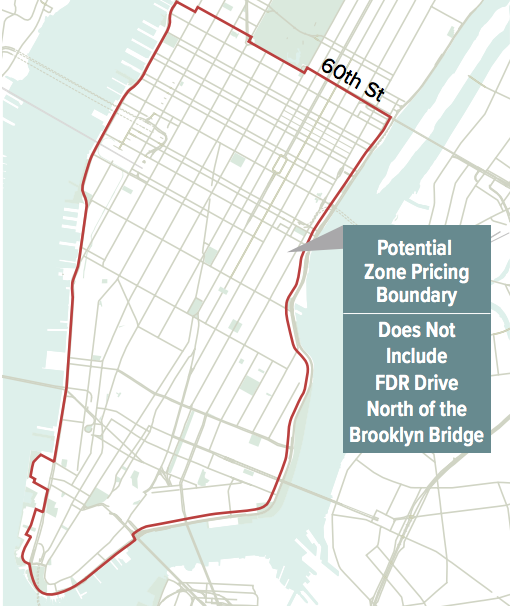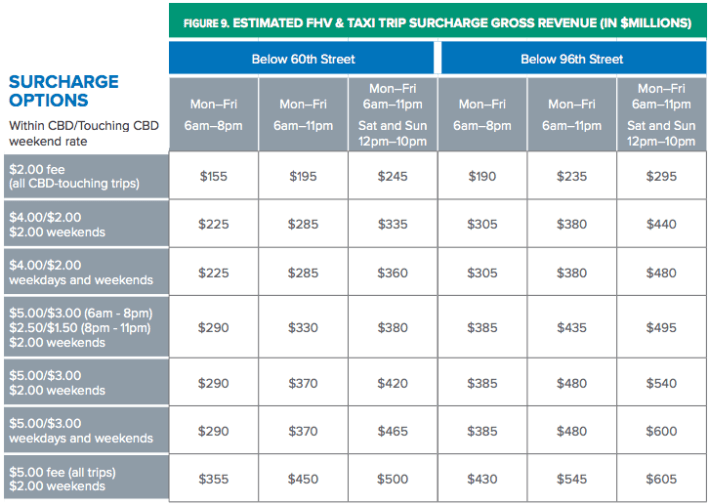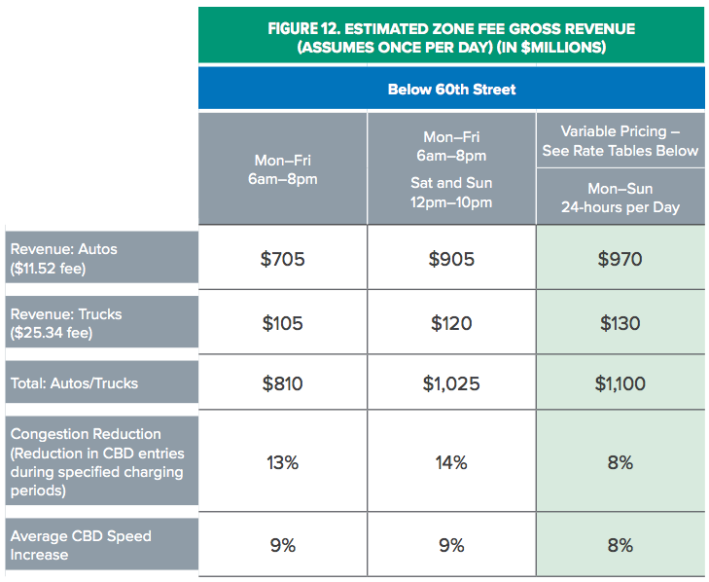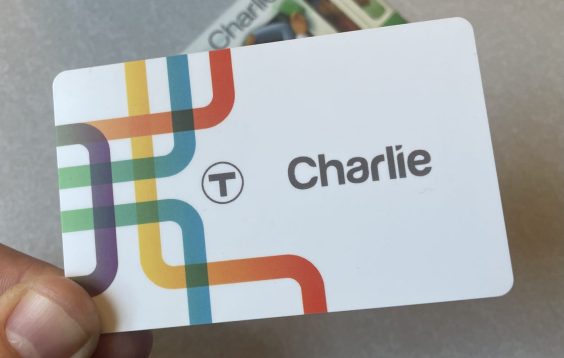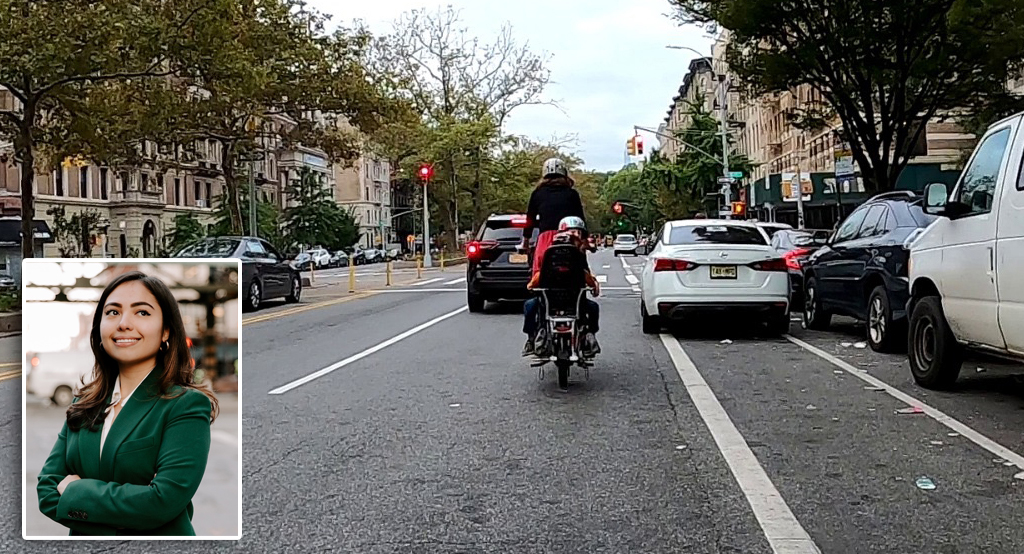Earlier today, Andrew Cuomo's Fix NYC commission released its 36-page report on reducing traffic congestion by introducing a more rational road pricing system [PDF]. The panel has produced a serious congestion pricing plan that would make a tangible difference, significantly cutting traffic on New York's most car-clogged streets.
The full report takes an expansive view of the traffic problem, touching on blocking-the-box and bus lane violations, declining transit service quality, the rapidly evolving for-hire vehicle industry, and other contributing factors. It doesn't address every major weakness afflicting the city's transportation system (high transit capital costs get only a glancing mention), but it covers a lot of turf.
The centerpiece, of course, is a cordon zone in Manhattan below 60th Street where drivers would pay for the use of scarce street space. Here's an overview of how it would all come together.
The Three-Phase Rollout
The panel calls for a three-phase rollout over about two years, starting with the identification of transit service improvements "for the outer boroughs and suburbs." Successful congestion pricing programs in other cities have been coordinated with transit enhancements to absorb the shift of trips from driving to transit.
The report leaves the naming of specific improvements for later, but along with a return to acceptable levels of subway reliability, the introduction of systemwide, tap-and-go all-door boarding on buses is a natural target. The current one-by-one payment system on most bus routes imposes significant delays on crowded routes. If more people are going to ride the bus, the fare payment process needs to keep pace.
Other recommendations for phase one that could make a big impact on traffic: automated enforcement for blocking-the-box violations and an overhaul of the city's parking placard system, overseen by a joint city-state task force.
The second phase focuses on taxis, Ubers, and other for-hire vehicles, with implementation slated for next year. The main mechanism to manage traffic is a surcharge on all for-hire vehicle trips in Manhattan below 60th Street (or 96th Street, the exact boundary is a choice the panel leaves up to legislators). The panel also recommends reducing mileage from for-hire vehicles cruising for passengers, lifting ideas from analyst Bruce Schaller's recent "Empty Seats, Full Streets" report.
And in the third phase, which would take effect in 2020, a congestion fee would be assessed on private cars and trucks entering Manhattan below 60th Street, affecting inbound motor vehicle trips that are currently untolled. There would be no charge, however, for drivers who take the Brooklyn Bridge directly to the FDR Drive or the Queensboro Bridge directly to 62nd Street and don't reenter the cordon zone.
The Pricing Matrix
The panel suggests a range of congestion fees on both for-hire vehicles and general traffic in the cordon zone. The effect on traffic reduction and the revenue that would be generated for transit will vary depending on what options legislators select.
The surcharge for each for-hire vehicle trip would range from $2 to $5. The options also vary based on time of day, the northern border of the zone (either 60th Street or 96th Street), and whether the trip is entirely within the zone or crossing the zone. Projected annual revenue ranges from $155 million to $605 million.
For general car and truck traffic, prices could vary according to time of day, falling when traffic is less intense. Or the fees could be flat and simply turned on and off, during peak/off-peak hours. Some options call for fees to be in effect on weekends, others do not.
Here the annual revenue generation ranges between $810 million and $1.1 billion.
The variable pricing scenario:
What Cuomo Says
In a statement today, Governor Cuomo generally endorsed the report while creating some distance between the panel's recommendations and his own policy preferences. "We must find a way to reduce the cost for outer borough bridges in any plan ultimately passed," he said.
For road pricing mavens, it was a pretty clear reference to the toll swap proposed in the Move NY plan: Lower the price on outlying MTA crossings in return for higher tolls to drive into the congested heart of the city. Assuming that's the direction that bargaining in Albany takes, it's all the more important to aim for the high end of the Fix NYC panel's pricing matrix.
